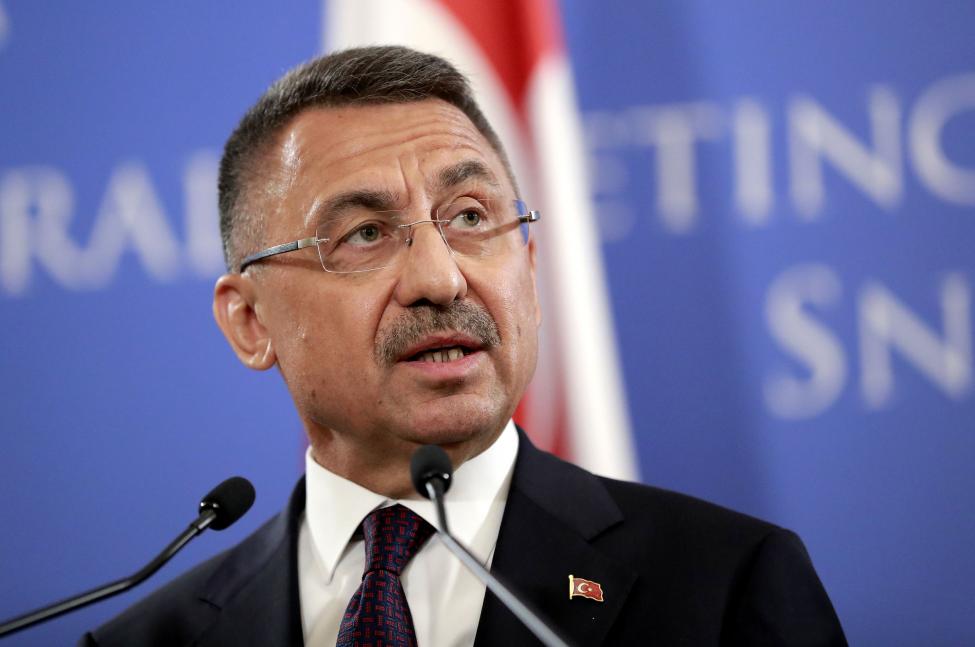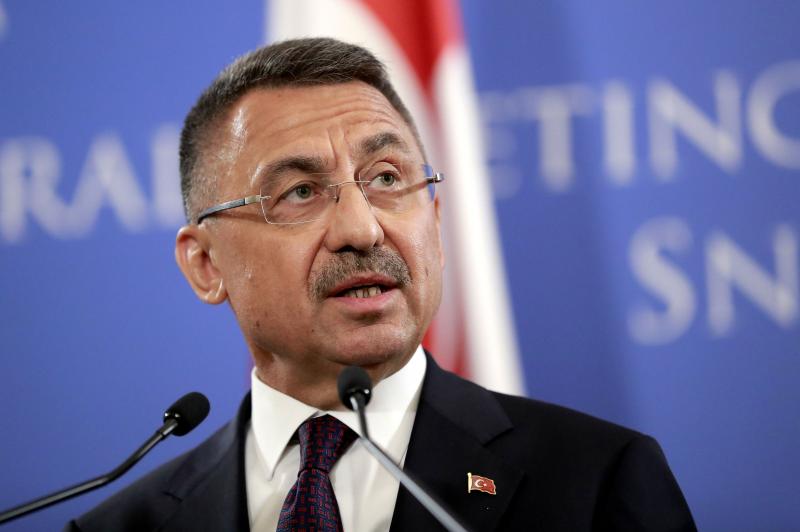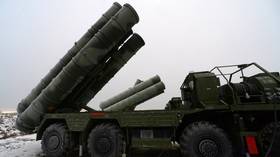Russia would be Turkey’s ‘first best choice’ for fighter jets if its F-35 plan flops
By: Burak Ege Bekdil 19.04.2019
As part of an ongoing spat between the U.S. and Turkey, parts deliveries for the F-35 have stopped.
ANKARA, Turkey — If U.S. officials were to expel Turkey from the multinational group that builds the F-35 Lightning II, Turkish defense officials said they likely would pursue Russian fighter jet technology.
“We cannot afford to leave the F-35 not substituted,” a senior military officer told Defense news. He declined to comment on the replacement options, as this would require “technological, economical and political deliberations.”
But a defense procurement official said “geostrategic assessment” would make Russian options emerge as the natural first replacement. “Russian fighter technology would the first best choice if our American allies behaved in an un-allied way and questioned Turkey’s membership in the Joint Strike Fighter program,” he said.
Washington has threatened to expel Ankara from the multinational program if Turkey deploys the Russian-made S-400 surface-to-air missile system on its soil.
If Turkey accepts the S-400, “no F-35s will ever reach Turkish soil. And Turkish participation in the F-35 program, including manufacturing parts, repairing and servicing the fighters, will be terminated, taking Turkish companies out of the manufacturing and supply chain for the program,” wrote a group of bipartisan lawmakers from the Senate Armed Services Committee and Senate Foreign Relations Committee.
Earlier this month, the Pentagon announced a freeze on deliveries and activities with Turkey in relation to the F-35 program over Ankara’s decision to buy the S-400. Turkey insists the first S-400 shipments would arrive in July and the first S-400 system would become operational in September.
A Turkish presidential source said that potential Turkish-Russian cooperation on fighter technology was “preliminarily discussed” between their respective defense officials during Turkish President Recep Tayyip Erdogan’s visit to Moscow on April 8.
Turkish Foreign Minister Mevlut Çavusoglu told broadcaster NTV on Apri 10: “There are F-35, but there are also aircraft manufactured in Russia. If we are not able to purchase [the] F-35, Turkey will buy similar aircraft from other countries. And this will continue until we start producing our own fifth-generation fighter jets.”
Such a move would make Turkey the only NATO member to simultaneously use the S-400 and Russian fighter.
“This is not a useful dispute for the alliance,” asserted an Ankara-based European Union military attache. “What we observe today could push Turkey further into Russia’s military orbit … and we don’t want that.”
Earlier this month, Russian Helicopters CEO Andrey Boginsky visited Turkey to discuss the possibility of co-production efforts.
However, Russia’s isn’t the only alternative for the F-35. In 2015, Turkey’s procurement authorities released a request for information for the TF-X, the country’s indigenous fighter jet program. Sweden’s Saab was one of the bidders to supply know-how for the initial design phase of the program, but Ankara selected Britain’s BAE Systems for that contract.
“Saab’s commitment to technology transfer was very generous, but its price was expensive at the time,” a Turkish official recalled. “Saab could now revise its bid and incorporate it into the new [no F-35] situation,” he said.
Another option for Turkey is Airbus, a partner in the Eurofighter program based in the Netherlands and France, the official added.
Russia would be Turkey’s ‘first best choice’ for fighter jets if its F-35 plan flops
By: Burak Ege Bekdil 19.04.2019
As part of an ongoing spat between the U.S. and Turkey, parts deliveries for the F-35 have stopped.
ANKARA, Turkey — If U.S. officials were to expel Turkey from the multinational group that builds the F-35 Lightning II, Turkish defense officials said they likely would pursue Russian fighter jet technology.
“We cannot afford to leave the F-35 not substituted,” a senior military officer told Defense news. He declined to comment on the replacement options, as this would require “technological, economical and political deliberations.”
But a defense procurement official said “geostrategic assessment” would make Russian options emerge as the natural first replacement. “Russian fighter technology would the first best choice if our American allies behaved in an un-allied way and questioned Turkey’s membership in the Joint Strike Fighter program,” he said.
Washington has threatened to expel Ankara from the multinational program if Turkey deploys the Russian-made S-400 surface-to-air missile system on its soil.
If Turkey accepts the S-400, “no F-35s will ever reach Turkish soil. And Turkish participation in the F-35 program, including manufacturing parts, repairing and servicing the fighters, will be terminated, taking Turkish companies out of the manufacturing and supply chain for the program,” wrote a group of bipartisan lawmakers from the Senate Armed Services Committee and Senate Foreign Relations Committee.
Earlier this month, the Pentagon announced a freeze on deliveries and activities with Turkey in relation to the F-35 program over Ankara’s decision to buy the S-400. Turkey insists the first S-400 shipments would arrive in July and the first S-400 system would become operational in September.
A Turkish presidential source said that potential Turkish-Russian cooperation on fighter technology was “preliminarily discussed” between their respective defense officials during Turkish President Recep Tayyip Erdogan’s visit to Moscow on April 8.
Turkish Foreign Minister Mevlut Çavusoglu told broadcaster NTV on Apri 10: “There are F-35, but there are also aircraft manufactured in Russia. If we are not able to purchase [the] F-35, Turkey will buy similar aircraft from other countries. And this will continue until we start producing our own fifth-generation fighter jets.”
Such a move would make Turkey the only NATO member to simultaneously use the S-400 and Russian fighter.
“This is not a useful dispute for the alliance,” asserted an Ankara-based European Union military attache. “What we observe today could push Turkey further into Russia’s military orbit … and we don’t want that.”
Earlier this month, Russian Helicopters CEO Andrey Boginsky visited Turkey to discuss the possibility of co-production efforts.
However, Russia’s isn’t the only alternative for the F-35. In 2015, Turkey’s procurement authorities released a request for information for the TF-X, the country’s indigenous fighter jet program. Sweden’s Saab was one of the bidders to supply know-how for the initial design phase of the program, but Ankara selected Britain’s BAE Systems for that contract.
“Saab’s commitment to technology transfer was very generous, but its price was expensive at the time,” a Turkish official recalled. “Saab could now revise its bid and incorporate it into the new [no F-35] situation,” he said.
Another option for Turkey is Airbus, a partner in the Eurofighter program based in the Netherlands and France, the official added.
Russia would be Turkey’s ‘first best choice’ for fighter jets if its F-35 plan flops



